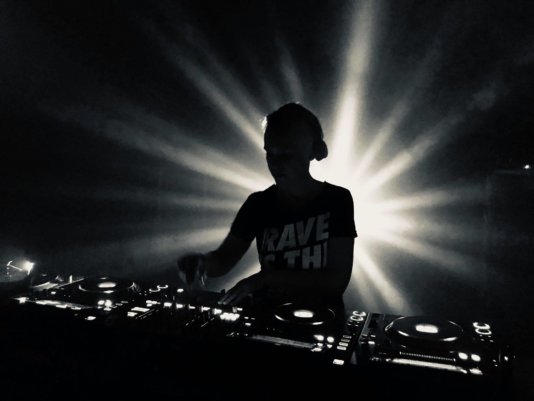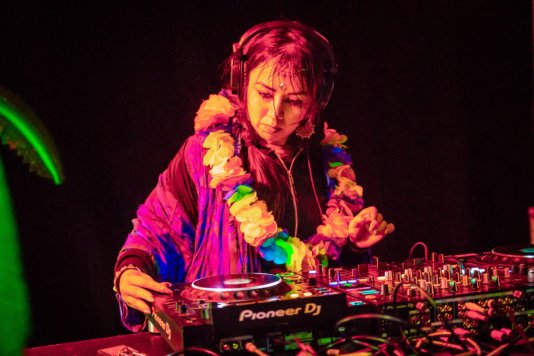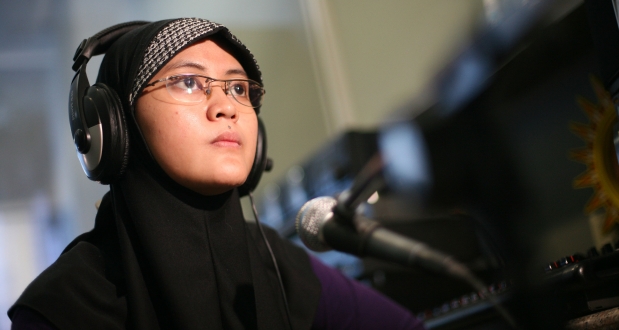- About
- Topics
- Picks
- Audio
- Story
- In-Depth
- Opinion
- News
- Donate
-
Signup for our newsletterOur Editors' Best Picks.Send
Read, Debate: Engage.
| April 17, 2020 | |
|---|---|
| topic: | Women's rights |
| tags: | #women's rights, #inequality, #Duncan JA Dick, #Female:Pressure, #art, ##metoo, #DJ PsiBindi |
| located: | Germany, USA, United Kingdom, Austria, France, Spain, Canada, Sweden, Australia |
| by: | Anu Shukla |
In 2016, founding father of Detroit Techno Juan Atkins hit out at global artist directory, The DJ List, for “publishing a racist top 100 DJ list” that indexed just two black DJs. He said it was “a slap in the face for the entire black race” considering black artists had pioneered “the development of this dance music and DJ culture”.
Four years and almost zero changes later, there are now just three black artists who make that list. Electronic music is as white and as male as ever. But according to the global music network “Female:Pressure”, the gender dynamic — while still lacking in ethnic diversity — is starting to shift. Research by the group reveals a 15.4 percent rise in the number of women/non-binary artists who have stepped up to the plate at electronic music festivals.
So what’s changed? According to Female:Pressure, there’s a rise in the number of women who book female artists and mix up festival line-ups. Secondly, there’s also a rise in professional networks for female artists that advocate fairer gender distribution.
Rena Biring aka DJ PsiBindi, founder of the network, Psy-Sisters, told FairPlanet: “When I founded Psy-Sisters in 2012, there was just a handful of women DJing the electronic music genre known as psychedelic trance. Now in our eighth year, we’ve seen a surge in women and non-binary acts performing at events right across the world, so the rise in female music networks like WXMB 2, Sisu, Draw the Line, In the Key of She and others, have played a significant role in this.”
Austrian music producer and feminist Susanne Kirchmayr, aka DJ Electric Indigo, launched Female:Pressure 22 years ago. She told Fair Planet: “We’ve been around long enough to play a role in the change and in the awareness of gender diversity.”
For Kirchmayr, there is also something deeper at play. She said “cultural spheres follow when societal circumstances change” and that discourses like the #MeToo movement play a role too. She added: “Women in positions of political power are crucial to changing preconceptions of the male norm in more fields than we can imagine, and we are seeing this too.”
Female:Pressure quantified the number of women on line ups at 675 editions of 348 unique electronic music festivals in 46 countries. The results revealed that the proportion of female* acts had risen from 9.2 percent in 2012, to 24.6 percent in 2019.
But in no way does this mean job-done-patriarchy-smashed. While the figures appear promising, the research concludes just 25 percent of all acts are female* compared to 65 percent male.
Festival organisers though can no longer say there are not enough female artists producing or playing electronic music. Female:Pressure’s database includes a list of almost 2,600 artists from 79 countries. They subscribe to identities spanning transgender and intersex to non-binary; and they are the hearts and souls behind a vast selection of electronic music, from acid house and wonky techno to bastard pop and vapour soul.
But Kirchmayr said this is just a “blip” on the radar of an estimated 272,319 female and non-binary artists operating in the electronic arts globally.
She added: “If you consider an estimated 24,000 female electronic music artists in the 10 main countries we list — namely Germany, USA, UK, Austria, France, Spain, Canada, Switzerland, Sweden and Australia — then we can say we list just over 10 percent of these. So in this sense, we’re very thankful to every other index of marginalised artists in the scene.”
Indeed, there are many databases that list women in music across continents. From Latin American Women Experimenting with Sound to the African and Asian Alternative Database: diversity, as Kirchmayr says, is what makes “art multifaceted, more inspiring, empowering and more fun for people,” and that without it, “we’d be missing out on a lot of perspectives and talent.”
But according to the research, it’s the bigger music festivals that are missing a trick with their deficit of female acts on line-ups.
Duncan Dick, editor of music publication Mixmag told FairPlanet that while the gender dynamic on line-ups has improved, the progress has been “frustratingly gradual.”
So what’s stopping these bigger events catching up? According to Dick it’s to do with an “inherent conservatism or fear of innovation” than “genuine business reasons”. But he agreed “capitalism does reinforce the patriarchy.”
Female duo Nervo was the only act to make it on to DJ Mag’s acclaimed 2012 Top DJ poll (different to the aforementioned DJ List). This rose to eight (white) female artists in the 2019 list, which featured just three black male acts.
The few female acts that do make it “only give the perception that gender inequality has been achieved” says Portsmouth University’s Professor Sam Warren. Warren, who is researching the role of women in electronic music said: “Change isn’t trickling down to smaller artists at the grassroots level where imbalance is harder to counter.”
The DJ Mag poll has been subjected to much criticism because the same list of white male DJs continue to hog the top spots. Their commercial success (and net worth), which feeds the corporatised music machine with EDM-pop fusions, is a contributing factor. Think David Guetta and Rihanna. Martin Garrix and Ed Sheeran. Calvin Harris and Pharrell Williams. DJ Mag did not reply to FairPlanet’s request for response about its poll.
So how is it possible to change the gender and race dynamic in the face of such corporatisation while preventing the commercialisation of electronic music?
Celebrity artists sell more magazines but a spotlight on “under-the-radar acts would also appeal to a wider audience,” Biring told FairPlanet.
Mixmag has aimed to keep its street-cred in check. It recently stated: “We’re not perfect but we do our best to seek out underground sounds and scenes, we try to maintain a rough gender balance, we don’t care about an artist’s social media likes and we don’t consider EDM/pop fusions part of our world or feel the need to cover them.”
Zoe Campbell aka DJ Splattergeist on Berlin label Gabber Noir Records points out “gender, ethnic and neurodiversity in music are crucial to evolutionary progress of the collective.”
The International Music Summit joined forces with female collective SheSaidSo last year and for the first time, published figures on gender inequality in music festivals. Its US poll of 23 of the “biggest multi-genre events” found female artists comprised just 19 percent of line-ups “with only three festivals achieving a 50:50 gender balance.”
Female: Pressure says that it is “troubling” to see festival line-ups in Europe and North America “overwhelmingly dominated by white artists” when the “origins of electronic dance music are of black and Latinx cultures.”
Change is in the making though. Professor Warren points out diversity in line ups of festivals like Noisily (UK), Tribal Gathering (Panama) and Primavera Sound (Spain). And as more women take up electronic music production, this will change further, she added.
But she also points out that “every single female artist” she interviewed for her research “has a story of being put down, sabotaged or sexually harassed.”
Perhaps this is why Female:Pressure’s “code of conduct” is so high on its list of recommendations to festivals: “It will ensure marginalised people feel safer and engage more actively in the scene,” says Kirchmayr. “We also advise festival organisers to connect with local underground scenes and to adopt a less capitalist approach by ensuring representation of female and non-binary artists of colour specifically.”



By copying the embed code below, you agree to adhere to our republishing guidelines.

